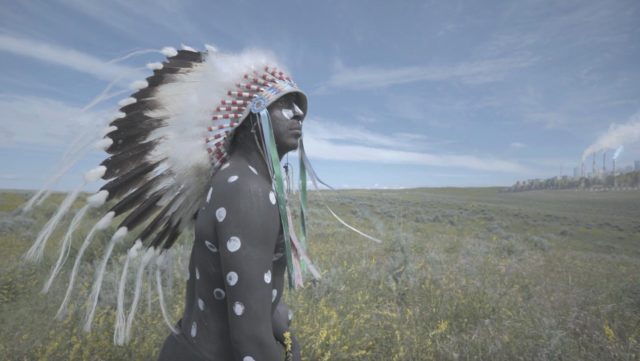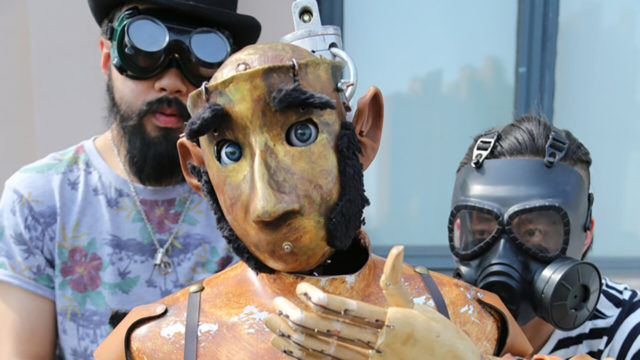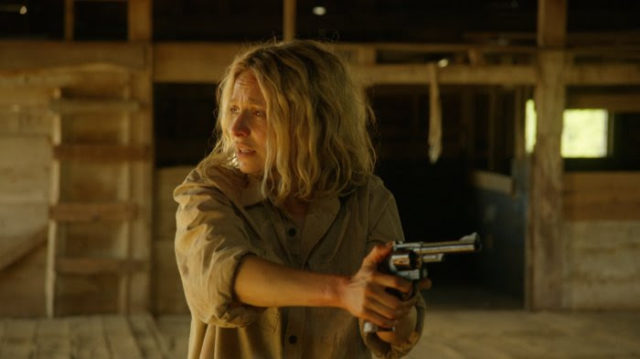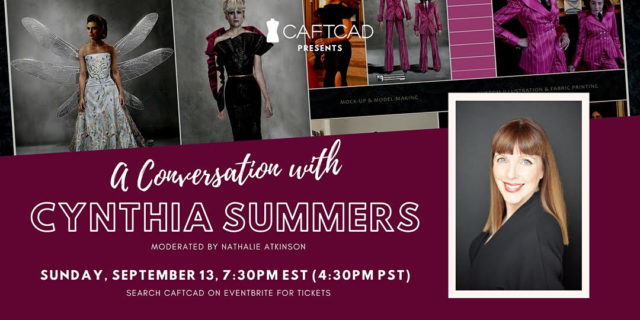Reviews include Irena’s Vow, The Beast, and Before I Change My Mind.
TFCA Friday: Week of Sept. 11
September 11, 2020
Welcome to TFCA Friday, a weekly round-up of film reviews and articles by TFCA critics.

TIFF 2020
See our members’ first reactions to Spike Lee’s opening night film David Byrne’s American Utopia.
Inconvenient Indian and Trickster director Michelle Latimer looks ready for a breakout year at TIFF! She’s been busy talking to TFCA members Barry Hertz (The Globe and Mail), Peter Howell (Toronto Star), Pat Mullen (Complex), Radheyan Simonpillai (NOW Toronto), and Jim Slotek (Original Cin).
At Variety, Jennie Punter looks at the Canadian features and sees how they’re adapting to a much different year for the festival.
Canadian doc No Ordinary Man corrects the history of transgender jazz musician Billy Tipton. At NOW Toronto, Radheyan Simonpillai previews the film in conversation with directors Aisling Chin-Yee and Chase Joynt and writer Amos Mac.
Does anyone want to see a coronavirus documentary at TIFF? Pat Mullen speaks with 76 Days director Hao Wu for POV Magazine and learns why everyone should.
Marc Glassman previews this year’s fest at POV Magazine and Classical FM, calling it “the strangest TIFF ever.”
Will a scaled-back TIFF retain its status as an launchpad for Oscar hopefuls? Barry Hertz breaks down the festival’s likeliest contenders at The Globe and Mail. He also reports on the impact of COVID-19 on Canadian film producers, recaps the shorts, and speaks with Concrete Cowboy director Caleb McLaughlin.
The members at Original Cin give the scoop on how to navigate TIFF during a very weird year.
At What She Said, Anne Brodie previews the festival with highlights including One Night in Miami and Ammonite.
At That Shelf, members Pat Mullen and Jason Gorber join their team in ranking every People’s Choice Winner in the history of TIFF and saluting TIFF Tribute Actor Award winner Kate Winslet.
In Release this Week
All In: The Fight for Democracy (dir. Liz Garbus, Lisa Cortés)
At POV Magazine, Pat Mullen speaks with directors Liz Garbus and Lisa Cortés about using the story of Stacey Abrams to examine the history of voter suppression in the USA.
The Broken Hearts Gallery (dir. Natalie Krinsky)
“Can a movie be revolutionary at the same time that it’s generic?” asks Barry Hertz at The Globe and Mail, who gets some answers in an interview with director Natalie Krinsky.
“Krinsky balances the age old ‘if it ain’t broke, don’t fix it’ approach to genre filmmaking with a commendable degree of progressiveness and intelligence.” – Andrew Parker, The Gate.
At AfroToronto, Gilbert Seah says there are “more irritations than laughs in this movie.”
Anne Brodie calls it a “witty and funny young adult film” at What She Said.
“And nice work on shooting a New York story in Toronto without it being obvious. It’s amazing what a few street scenes and some judicial establishing shots can do,” notes Chris Knight at The National Post.
I Am Woman (dir. Unjoo Moon)
“It doesn’t reinvent or reinvigorate the increasingly tiresome genre, but it does stand as a fine example of how this type of film can be made well with a careful balancing of grace, poise, and melodrama,” observes Andrew Parker at The Gate.
“Biopics don’t usually devote this kind of time and energy to the realistic portrayal of a multifaceted marriage,” writes Chris Knight at The National Post.
“Cobham-Hervey sings well but lacks the fire I remember.” – Anne Brodie, What She Said.
I Am Woman “plays to the popular audience with lots of her popular hits (Delta Dawn, Angie Baby, I Don’t Know How to Love Him) and offers little new insight on the female movement,” writes Gilbert Seah at AfroToronto.
“Performance sequences, well-shot by cinematographer Dione Beebe (Mary Poppins Returns) showcase Reddy in a wonderfully gaudy range of period-specific flowing pant suits and off-the-shoulder gowns,” says Liam Lacey at Original Cin.
“Reddy’s granddaughter Lily Donat echoes “I Am Woman” by performing the powerful original song “Revolution” in the film…an inspiring call to action for women and allies to win the fight once and for all,” writes Pat Mullen at That Shelf.
Our Time Machine (dir. Sun and S. Leo Chiang)
“At the film’s best, the film examines the struggles of old age. At its worse, the doc over praises Maleonn’s efforts o no end in putting the play together,” says Gilbert Seah at Afro Toronto.
Ravage (dir. Teddy Grennan)
“It’s wrung from the overused, oily rags of every other knock off of The Texas Chain Saw Massacre, The Hills Have Eyes, and Wake In Fright, but with little of the shock value,” says The Gate‘s Andrew Parker.
The Tax Collector (dir. David Ayer)
“The Tax Collector is nothing if not efficient and plentiful when it comes to the barrages of bullets and bloody, brutal beatdowns, but it’s also bland and boring,” writes Andrew Parker at The Gate.
It’s “necessarily violent as films of the genre need this violence to make them work,” offers Gilbert Seah at Afro Toronto.
CAFTCAD
As part of CAFTCAD’s upcoming virtual exhibit, Nathalie Atkinson is in extended conversation with Emmy-nominated Canadian costume designer Cynthia Summers on her work and process. Summers’s credits range from The L Word, The Baby-Sitters Club and Lemony Snicket to Resident Alien and Snowpiercer — and we promise a flashback to her very first design project, Mina Shum’s Double Happiness. Sunday September 13 at 7:30PM EST. Tickets and details.










